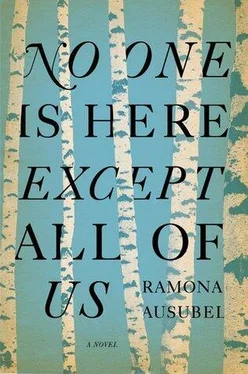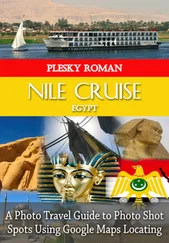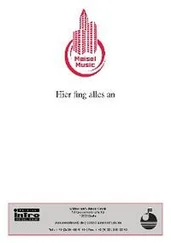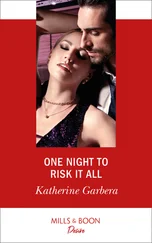A buzzing, rolling, mechanical city met us soon. This invention had outgrown its creator. Hammer together scraps of wood into the shape of legs and in the morning the body is up and walking. By midday, your tools are missing and the roads are battered by wheels. The farmer and I stood on the very edge of the road while people passed us in cars. The cars spit out gray smoke, hot and thick.
The town was full of people, walking, driving, riding bicycles, yelling, wearing hats and carrying large leather bags, reading the newspaper, smoking and standing there with the sun in their eyes, waiting for whatever came next.
“Where have I always been?” I asked. The farmer put his hand on my shoulder.
“This is the world,” he said. “This is the regular, loud world.” The cars spit dust up at children poking their heads out of second-story windows. The children called to other children on the street, broke down in giggles. The scene unfolded in slow motion. A gray cat tore at a liver, which turned his face dark red. One of the children tripped over the cat and fell into a puddle and the liver rolled and the cat squawked and the other children’s faces burned up with laughter. No one laughed harder than the boy in the puddle, who was on his knees, holding his belly. His friends came to him, took him by the elbows and picked him up. These boys on this street had just lived one of the stories they would tell and tell, a story whose medicine would be strong enough to draw laughter for all the years of their lives. One of the boys kicked the liver back to the cat, who resumed his feasting.
“So many people are still alive,” I said.
“These people are different from yours. No one’s trying to kill these ones,” the farmer said. He led me slowly through the streets. The windows in the cars winked light at us. Small pieces of trash were ground into the sidewalk. A pair of dogs approached us, looked up with polished and hopeful eyes, waited to be saved. The farmer tossed them nothing and I had nothing to toss.
“Your train,” the farmer said, gesturing.
The machine was churning and soot-black. I studied its huge and numerous wheels, its doors and windows and platforms and chains. The farmer gave me a ticket for the Black Sea port city. He gave me the name of the office where I should buy passage on a ship to the New World — that’s what he called it.
“I already lived in a new world,” I told him. “I’m not sure I can manage another.”
“I don’t know what you’re talking about,” he said, “but this is a nice place where you’ll live your life out. Your entry papers are all set. Everything is prepared.” He was talking quickly, anxious to get to the part where I was gone and he was free to be the father he had dreamed of being. He said he did not know what had happened to me out there in the fields, or before, but that he was sure the world would make sense to me again soon. He wrote my name in his dirty arm with his fingernail: Natalya . I nodded. He added: Live . I nodded again. On the other arm he wrote: Sorry . I nodded a third time. I scratched two words back: Good Father . He smiled. His whole face rose up. He did not pay me the same compliment, and I was glad because I would not have deserved it.
The farmer waited alone on the platform. I watched two women run to each other and exclaim utter delight with their arms wrapped around each other. One handed the other a round box, which popped open to reveal a light purple hat with a small robin perched on its brim. The hatted woman looked at me and I looked at her. We observed each other, probably misunderstanding everything. To her, the farmer could have been my brother, missing me already, the next visit years away. We could have been lovers whose parents had forbidden our union. We could have been a mother and a father, doing all the heroic and vicious things we knew to protect the child we each claimed. The train cried and began to drag itself out of the station. Every single person on the platform, absolutely all of them, waved. They had practiced, and they performed beautifully. The farmer waved, looked at the ground and then waved again. I wept into my cupped palms, where a pool collected, salty and warm, which I lapped up like the gray cat.
I tasted the dead and I tasted the living.
THE BOOK OF THE LOCKED-AWAY HEAVENS
When a warship appeared on the horizon, Francesco brought more paper but no more envelopes. Igor said, “Aren’t we going swimming?”
“We’re staying here.”
“How long to ride even a slow, crippled horse to my home?”
“We’re staying here.”
“I’m talking about the mail. What is the slowest possible time?”
“Nothing leaves this room from now on. You are a prisoner of war and I am your guard. Those are the only orders I have ever been given.”
“No reason to be defensive,” Igor said. “It’s just that I was planning to go swimming.”
Francesco punched Igor once, hard, in the face. It was a terrible, exhilarating feeling. His fist came back bloody with heroism. “No one asked what you wanted.”
The islanders tracked the warship as it came ever closer. Francesco paced, practicing for the arrival. He would play the just and righteous guard, carrying out his duties with a firm but fair hand. No one had given him orders to empty his prison.
Igor spent the wait writing furiously in a notebook whose pages he did not tear out and send away. It was a manual to his sons on how to live, as best he could tell them.
Open your eyes to wake up. It is possible to be awake with your eyes closed, but you will not be able to see anything around you.
When you are given bread, try to enjoy it right away. Bread right away is better than bread later.
If you can’t remember the stars’ shapes, make more up. Sometimes you have to make your own heavens.
If you have children, which I hope you do, do not get taken prisoner so that you cannot see them when they are five, six, eight. Do not fall asleep in the barn and get taken away in a car, even if the island is warm and beautiful where you are going. If your children are boys, name them for kings. If your children are girls, name them for mothers.
You must already know everything I know. What can I teach you? I know how to eat and I know how to play checkers. This is a game played on the diagonal. One of us will win.
Do whatever your mother tells you to. She is probably right. She will be thinking of what will be best. If you see me again, I will try to tell you what is best, too. I hope your mother and I will agree. We will try to. You should try to agree with people, too.
Solomon used to know some of the prayers. Do you still know them? I know the sound of them, but not the words. Try practicing them so you do not forget. Roll them around in your mouth. This is one thing that I do with your names so that you feel close to me all the time. Your names, Lena, Solomon and Beautiful Baby, are in my mouth. Your names go down my throat when I swallow. I carry you everywhere.
“What have I missed?” Igor asked through the bars.
“Cooking. Cleaning up. Walking. Serving of tea. Staying dry in the rain,” Francesco said.
“Help me remember.”
Dear Igor, Francesco thought, I can survive anything with you.
In the afternoon, the huge warship docked, and a hundred men disembarked.
“Are you with Mussolini or the Allies?” the biggest man yelled in badly accented Italian. The old man who ran the taverna shrugged and told them, “We’re for whoever you are. We just want to live.”
“Good. We need supplies.”
The soldiers took food from people’s cellars and medicine from their cupboards. They gathered rope from people’s boats and shoes from their closets. They came to the jail where Francesco was sitting at his desk with his feet up looking as much in control as he could. Igor was cowering in the corner of the cell. Three soldiers came to the prison door and said in unison, “Is that it? One prisoner?” Francesco, so consumed with his duty to Igor, had forgotten to think of his jail as deficient.
Читать дальше












